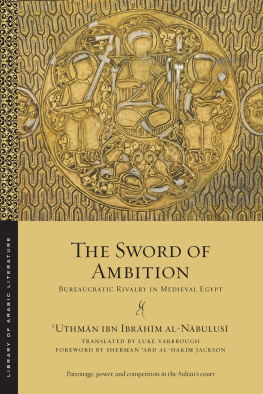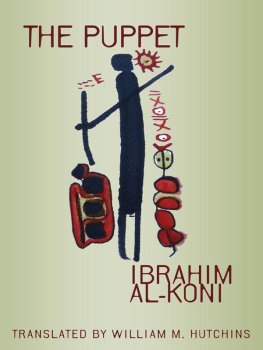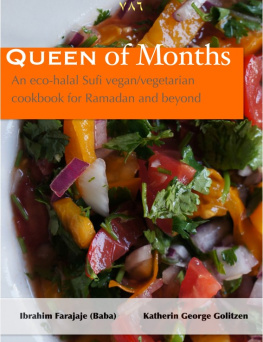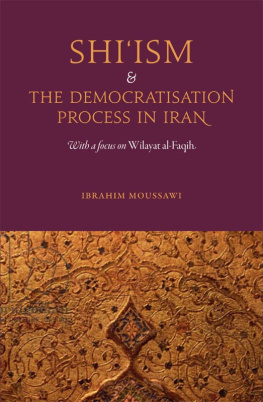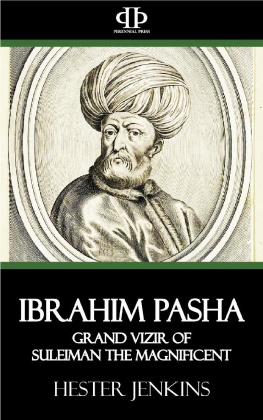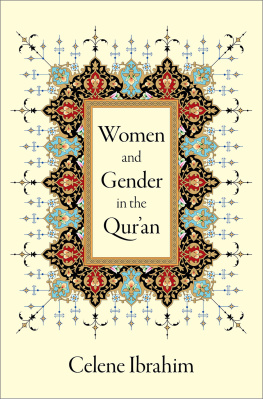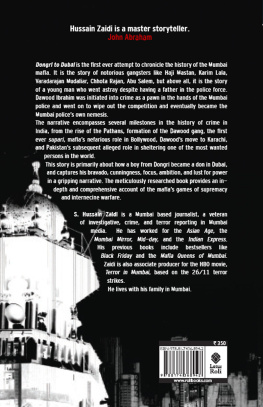ʿUthmān ibn Ibrāhīm al-Nābulusī - The Sword of Ambition
Here you can read online ʿUthmān ibn Ibrāhīm al-Nābulusī - The Sword of Ambition full text of the book (entire story) in english for free. Download pdf and epub, get meaning, cover and reviews about this ebook. year: 2019, publisher: NYU Press, genre: Religion. Description of the work, (preface) as well as reviews are available. Best literature library LitArk.com created for fans of good reading and offers a wide selection of genres:
Romance novel
Science fiction
Adventure
Detective
Science
History
Home and family
Prose
Art
Politics
Computer
Non-fiction
Religion
Business
Children
Humor
Choose a favorite category and find really read worthwhile books. Enjoy immersion in the world of imagination, feel the emotions of the characters or learn something new for yourself, make an fascinating discovery.
- Book:The Sword of Ambition
- Author:
- Publisher:NYU Press
- Genre:
- Year:2019
- Rating:4 / 5
- Favourites:Add to favourites
- Your mark:
- 80
- 1
- 2
- 3
- 4
- 5
The Sword of Ambition: summary, description and annotation
We offer to read an annotation, description, summary or preface (depends on what the author of the book "The Sword of Ambition" wrote himself). If you haven't found the necessary information about the book — write in the comments, we will try to find it.
The Sword of Ambition — read online for free the complete book (whole text) full work
Below is the text of the book, divided by pages. System saving the place of the last page read, allows you to conveniently read the book "The Sword of Ambition" online for free, without having to search again every time where you left off. Put a bookmark, and you can go to the page where you finished reading at any time.
Font size:
Interval:
Bookmark:

THE SWORD OF AMBITION
LIBRARY OF ARABIC LITERATURE
EDITORIAL BOARD
GENERAL EDITOR
Philip F. Kennedy, New York University
EXECUTIVE EDITORS
James E. Montgomery, University of Cambridge
Shawkat M. Toorawa, Yale University
EDITORS
Sean Anthony, The Ohio State University
Julia Bray, University of Oxford
Michael Cooperson, University of California, Los Angeles
Joseph E. Lowry, University of Pennsylvania
Maurice Pomerantz, New York University Abu Dhabi
Tahera Qutbuddin, University of Chicago
Devin J. Stewart, Emory University
EDITORIAL DIRECTOR
Chip Rossetti
DIGITAL PRODUCTION MANAGER
Stuart Brown
ASSISTANT EDITOR
Lucie Taylor
FELLOWSHIP PROGRAM COORDINATOR
Amani Al-Zoubi
LETTER FROM THE GENERAL EDITOR

The Library of Arabic Literature makes available Arabic editions and English translations of significant works of Arabic literature, with an emphasis on the seventh to nineteenth centuries. The Library of Arabic Literature thus includes texts from the pre-Islamic era to the cusp of the modern period, and encompasses a wide range of genres, including poetry, poetics, fiction, religion, philosophy, law, science, travel writing, history, and historiography.
Books in the series are edited and translated by internationally recognized scholars. They are published as hardcovers in parallel-text format with Arabic and English on facing pages, as English-only paperbacks, and as downloadable Arabic editions. For some texts, the series also publishes separate scholarly editions with full critical apparatus.
The Library encourages scholars to produce authoritative Arabic editions, accompanied by modern, lucid English translations, with the ultimate goal of introducing Arabics rich literary heritage to a general audience of readers as well as to scholars and students.
The Library of Arabic Literature is supported by a grant from the New York University Abu Dhabi Institute and is published by NYU Press.
Philip F. Kennedy
General Editor, Library of Arabic Literature
ABOUT THIS PAPERBACK
This paperback edition differs in a few respects from its dual-language hardcover predecessor. Because of the compact trim size the pagination has changed. Material that referred to the Arabic edition has been updated to reflect the English-only format, and other material has been corrected and updated where appropriate. For information about the Arabic edition on which this English translation is based and about how the LAL Arabic text was established, readers are referred to the hardcover.
THE SWORD OF AMBITION
Bureaucratic Rivalry in Medieval Egypt
BY
AB AMR UTHMN IBN IBRHM AL-NBULUS AL-MIR

TRANSLATED BY
LUKE B. YARBROUGH
FOREWORD BY
SHERMAN ABD AL-AKM JACKSON
VOLUME EDITOR
DEVIN J. STEWART
 | NEW YORK UNIVERSITY PRESS New York |
NEW YORK UNIVERSITY PRESS
New York
Copyright 2018 by New York University
All rights reserved
Library of Congress Cataloging-in-Publication Data
Names: Nabulusi, Uthman ibn Ibrahim, active 1235, author. | Yarbrough, Luke B., editor translator.
Title: The sword of ambition : bureaucratic rivalry in medieval Egypt / by Uthman ibn Ibrahim al-Nabulusi ; translated by Luke Yarbrough ; foreword by Sherman Abd al-Hakim Jackson.
Other titles: Tajrid sayf al-himmah li-istikhraj ma fi dhimmat al-dhimmah. English
Description: New York, NY : New York University Press, [2019] | Includes bibliographical references and index. | Translated from Arabic.
Identifiers: LCCN 2018052783 (print) | LCCN 2018056655 (ebook) | ISBN 9781479801022 (ebook) | ISBN 9781479839766 (ebook) | ISBN 9781479824786 (pbk. : alk. paper)
Subjects: LCSH: Administrative agenciesEgyptEarly works to 1800. | EgyptPolitics and government640-1882Early works to 1800.
Classification: LCC JQ3831 (ebook) | LCC JQ3831 .N3313 2019 (print) | DDC320.96209/02--dc23
LC record available at https://lccn.loc.gov/2018052783 New York University Press books are printed on acid-free paper, and their binding materials are chosen for strength and durability.
Series design and composition by Nicole Hayward
Typeset in Adobe Text
Manufactured in the United States of America
10 9 8 7 6 5 4 3 2 1
D.B.G.
CONTENTS
ABBREVIATIONS
See the Bibliography for full information.
In the endnotes to the translation:
Akm | Ibn Qayyim al-Jawziyyah, Akm ahl al-dhimmah |
EI2 | The Encyclopaedia of Islam, Second Edition |
EI3 | The Encyclopaedia of Islam, Three |
Madhammah | Ibn al-Naqqsh, Kitb al-Madhammah f stiml ahl al-dhimmah |
Radd | Ghz ibn Amad ibn al-Wsi, Radd al ahl al-dhimmah wa-man tabiahum |
Yatmah | al-Thalib, Yatmat al-dahr |
FOREWORD
SHERMAN ABD AL-AKM JACKSON
A prominent scholar of Islamic history once wrote, Ulamalogy is a noble scienceat least we have to think so, because it is almost all the Islamic social history we will ever have. This sentiment about ulamareligious scholars and juristsunderscores a perduring tension in the study of premodern Islam, between the ideal theories and prescriptions laid down by those writers on the one hand and quotidian reality on the other. Even the descriptive efforts of premodern Muslim historians afford scant insight into social trends, attitudes, actors, or movements. And it is in this context that the value of the present work is thrown into bold relief.
The Sword of Ambition (Tajrd sayf al-himmah li-stikhrj m f dhimmat al-dhimmah) might be described as a social polemic packaged in the language of Islamic law. Its author, Uthmn ibn Ibrhm al-Nbulus (d. 660/1262), a noted official in the Ayyubid state, sets out to undermine the legitimacy of non-Muslims serving in positions of political authority. Not only are non-Muslims untrustworthy in Ibn al-Nbuluss view, for him the very fact of their functioning in any official capacity in a Muslim state violates the ideal Islamic social order, which, he intimates, is supposed to reflect the absolute supremacy of Islam and the subordination of all other religions. Thus, Ibn al-Nbulus is relentless in adducing Quranic verses, Prophetic hadiths, statements and actions of the prophet Muhammads Companions, the early caliphs, governors, scholars, and even poets, to substantiate both the impermissibility and the impropriety of non-Muslims serving in Muslim government.
We must be careful, however, as we negotiate the ferocity of Ibn al-Nbuluss invective, not to be seduced into overestimating or underestimating its value or meaning. Ibn al-Nbulus clearly casts his arguments in explicitly legal terms, as he wants to convey the sense that he is motivated not by personal bias but by piety and an assiduous commitment to the ideals and interests of Islam. Yet, by de-contextualizing scripture, conflating its general descriptions with specific identities, by suppressing countervailing texts and historical examples, and by imputing to early generations the authority to hand down permanently binding findings of fact, Ibn al-Nbulus ultimately tips his hand. To take just a couple of examples, he completely suppresses Quranic statements that speak to the trustworthiness of Jews and Christians, for example: And among the People of the Book are those whom if you entrust them with an entire treasure, they will promptly return it to you. (Q l Imrn 3:75). Meanwhile, he leaves us to assume that a Jews or a Christians commission of this or that indiscretion as a matter of
Next pageFont size:
Interval:
Bookmark:
Similar books «The Sword of Ambition»
Look at similar books to The Sword of Ambition. We have selected literature similar in name and meaning in the hope of providing readers with more options to find new, interesting, not yet read works.
Discussion, reviews of the book The Sword of Ambition and just readers' own opinions. Leave your comments, write what you think about the work, its meaning or the main characters. Specify what exactly you liked and what you didn't like, and why you think so.

